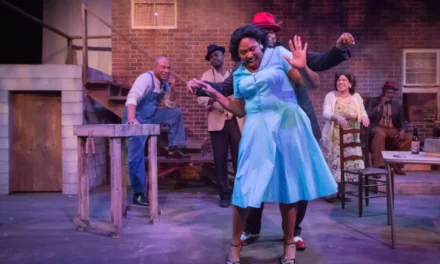
Photo Credit: Ridofranz
Almost all older adults hospitalized with RSV had at least one underlying medical condition, and severe RSV-related outcomes were common.
“RSV causes substantial illness and death in older adults,” Fiona P. Havers, MD, MHS, notes. “In June 2023, the CDC recommended the first RSV vaccines for adults aged 60 and older using shared clinical decision making. Understanding the characteristics of adults in this age group who are hospitalized for RSV can help patients and their clinicians understand which patients are at risk for severe RSV and if they should receive the RSV vaccine.”
For a study published in Morbidity and Mortality Weekly Report, Dr. Havers and colleagues examined data from a large, geographically diverse surveillance system operating in 12 states: California, Colorado, Connecticut, Georgia, Maryland, Michigan, Minnesota, New Mexico, New York, Oregon, Tennessee, and Utah. They aimed to determine the characteristics of adults aged 60 and older who were hospitalized with RSV during the 2022-2023 respiratory virus season.
The researchers noted that, because the 2022-2023 RSV season began earlier when compared with seasons prior to the COVID-19 pandemic, the data included patients hospitalized from July 2022 to June 2023. The study team stratified patients by age and site from a random sample of medical records from October 2022 to April 2023.
Impact of Age on Hospitalization Rates & Disease Severity
More than half (54.1%) of the total sample (N=1,634) was aged 75 and older. There were more women (n=975) than men (n=659) and most patients (n=1,181) were White.
Nearly the entire sample (95.5%) had at least one underlying medical condition (Figure). The most common conditions included obesity (37.8%), COPD (33.7%), congestive heart failure (33.2%), and diabetes (32.6%).
The researchers reported the occurrence of severe outcomes in 18.5% of hospitalized patients aged 60 and older. In total, 17.0% of patients were admitted to the ICU, 4.8% were treated with mechanical ventilation, and 4.7% died in the hospital. Dr. Havers and colleagues found that 17.2% of all cases occurred among residents of long-term care facilities.
“The majority of RSV-related hospitalizations among adults aged 60 and older occurred among those aged 75 and older,” Dr. Havers notes. “Severe outcomes, such as ICU admission, mechanical ventilation, and in-hospital death, were common, with 18.5% of hospitalized patients experiencing at least one severe outcome.”
The study also showed that the median age of hospitalized older adults who were American Indian or Alaska Native, Black, and Hispanic was lower than that of White patients, so patients in these three groups accounted for a larger proportion of the RSV hospitalizations among younger age groups.
“This finding likely reflects different age distributions, as well as life expectancy, within the population, as well as potentially higher risk for hospitalization at younger ages resulting from racial and ethnic disparities in underlying medical conditions, access to medical care, and socioeconomic status,” the researchers wrote.
Recommending RSV Vaccine & Evaluating Real-World Use
The results illustrate the importance of considering age (especially age 75 and older), long-term care facility residence, and the presence of underlying medical conditions when making decisions regarding RSV vaccination. “Clinicians should prioritize patients at the highest risk for severe RSV disease for RSV vaccination,” Dr. Havers says.
The CDC recommends that clinicians use shared clinical decision making with their patients in talking about RSV vaccination, with efforts to tailor decisions to the individual characteristics and risk factors of each patient who is 60 and older.
“Moving forward, it is crucial for future studies to focus on evaluating the real-world effectiveness of the newly approved RSV vaccines, especially in the context of the specific risk factors identified in this study,” Dr. Havers says. “This involves evaluating vaccine uptake, its effectiveness in preventing severe outcomes, and potential disparities in access across different demographic groups. Additionally, special attention to equitable access to vaccines are needed for American Indian and Alaska Native, Black, and Hispanic adults, who were hospitalized for RSV at younger ages than White adults. Such insights will be pivotal for refining public health strategies and optimizing vaccine implementation strategies.”





